Why Barnsgrove is a farm diversification with a difference
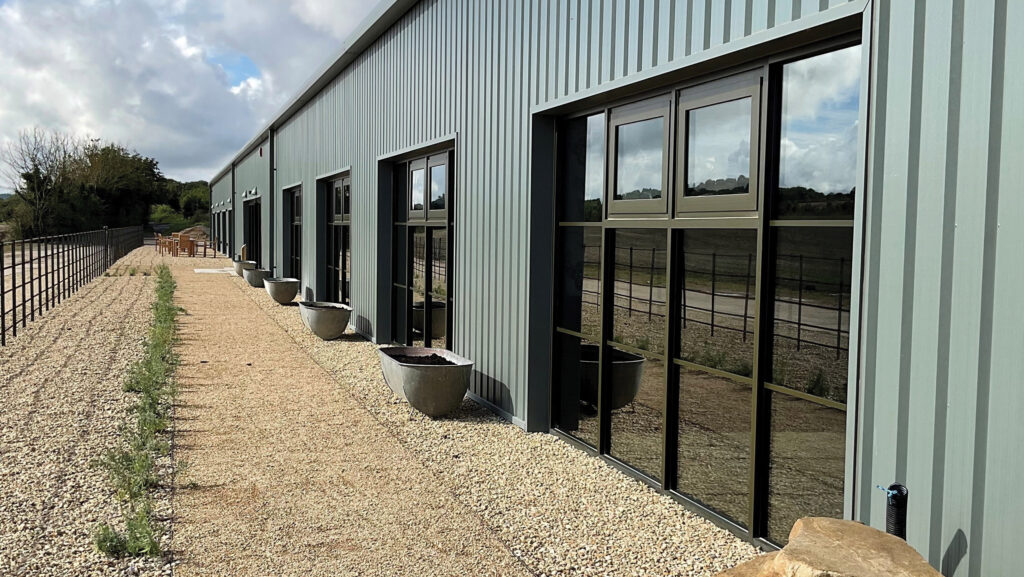 © Bromsgrove
© Bromsgrove Jo and James Butler decided to sell their dairy herd 16 years ago and began mulling what to do with the dairy site, which is about a mile from their home.
The core of the business is a 500ha conventional arable operation.
With farming facing headwinds in more recent years, including the UK’s departure from the EU, the search for a further alternative enterprise was stepped up about eight years ago.
“We started brainstorming, looking at what the area was lacking and originally thought of a health spa,” says Jo.
See also: How diversification enterprises can offer route to succession
Planning was applied for, but after much research and consideration, they decided to develop a high-standard private members’ club instead.
The idea is to provide a space where members can work, play, exercise, relax and socialise, all under one roof.
“Covid changed people’s priorities and the way they work. There are private members’ clubs of this standard in London and we thought why not in the countryside?” says Jo.
The aim is for this to be a local club for local people – the farm is minutes from Basingstoke and within half an hour’s drive of Winchester. It is also just an hour’s drive from west London.
Barnsgrove facts
- Full membership costs from £250/month for over-25s, with a partner rate from £175/month
- Opening times: 7am to 7pm on Sunday to Wednesday and 7am to 10pm from Thursday to Saturday
- There are six electric car charging points and provision for cyclists
- Barnsgrove is for over-18s during the week, with children welcome in certain areas at weekends and on bank holidays until 5pm
The 50-year old dairy building wasn’t suitable for conversion so its site has been used to construct a building that is visually low impact and retains its agricultural roots externally.
The interior is an altogether different proposition, with a clubhouse, café, bar, an exercise studio, two indoor padel courts (a racket sport that includes using the walls), a multifunctional gym, personal trainers, private offices, resident desks and hot-desking facilities.
There are also meeting and event spaces and three beauty and wellness treatment rooms.

© Matt Austin
Business model
Different business models were considered, including taking outside investment, a joint venture or even renting the site to a third-party operator.
Eventually, Jo and James decided they would do this on their own, incorporating the new enterprise into the farm business and running everything under a single company structure.
Collaboration would have been potentially difficult, says Jo, as she had a very clear impression of what she wanted to create in terms of the surroundings, the facilities, the atmosphere and the standards of service.
“When it’s your dream and your vision, it would have been hard to hand anything over,” she says.
Jo and James have both been very involved in the development, taking on the project management themselves.
Jo’s previous experience has been valuable – she has a degree in agricultural business management from Wye College and began her career in estate agency in London.
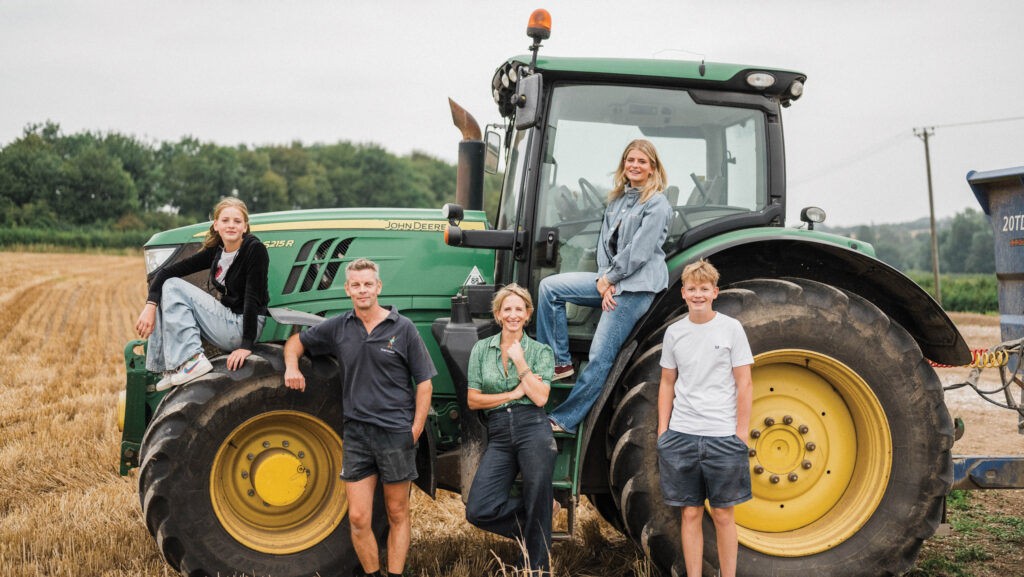
The Butler family © Matt Austin
This was followed by a spell at East Anglia land agent Cheffins, then forming her own company selling to high-end hotels.
After meeting James, she moved to his family farm in Hampshire and started a millinery business.
The club building is 1,858cu m and its meeting rooms, which each seat 50 people, can be combined to accommodate larger numbers.
There are 10 private offices for between five and seven people, 20 resident desks, two Zoom pods, printing facilities and postroom access, a kitchenette, lockers, and hot-desking in the café and bar for members only.
The café offers a healthy menu using seasonal foods, sourced within the county boundary where possible. There is a permanent staff of 10, with four in the senior team and six front of house.
In addition, the club provides work for self-employed therapists and personal trainers.
A good network of public footpaths means members have the opportunity to exercise in the fresh air, too.
The club building has roof-mounted solar panels and a large biomass boiler.
There is also planning permission for a large, long-term leased solar site on the farmland.
Existing diversification enterprises include let residential properties and commercial lets, rented to a transport company, a carpentry business and storage firm, among others.
Six-month milestone
Six months on from the club’s September 2024 launch, Jo and James say membership is building.
They are pleased that among the Barnsgrove community there is a huge mix of people, whose ages range from 25 to 85.
Already many new friendships have been forged and business connections made.
“It’s a real community,” says Jo, “which is just what we wanted to create.”
She stresses that it’s very much the members’ club and will develop according to what members want.
“The community and collaboration between people has been great to see.
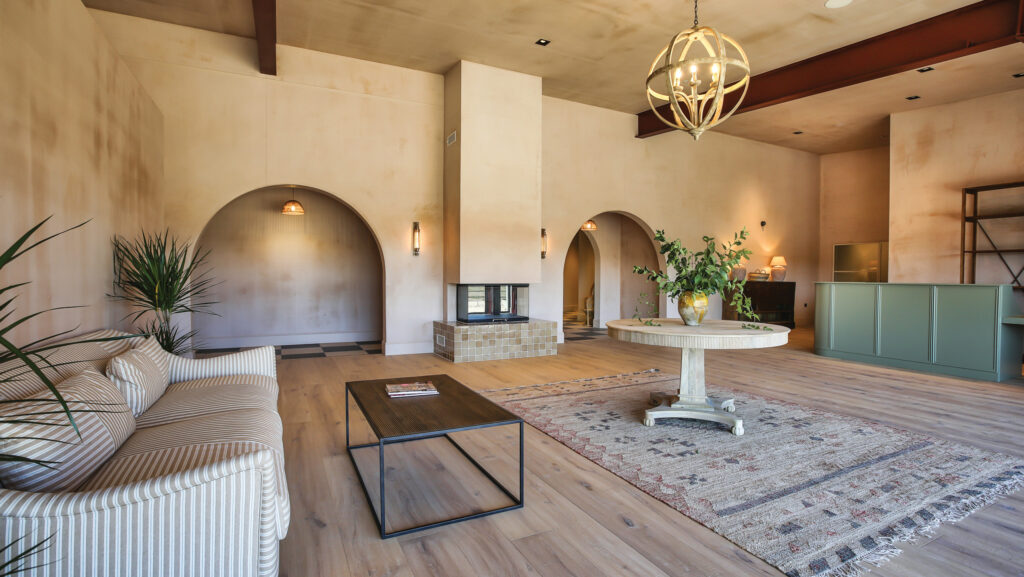
© Robyn Liebenberg
“We have had lonely people join for exercise, who have found friendship here, and people who have been working at home now come to work here and to socialise.”
It’s still early days, but the individual desks have been popular, with 18 of the 20 available already let.
Demand is such that they may convert some of the larger office spaces, which were designed to be flexible, to provide more individual desks.
Budgeting
There were hardly any comparable businesses to use as a guide as Jo and James were developing their ideas.
For others planning such a big diversification investment or project at this level, their tips include making sure budgets are realistic across the board but particularly in terms of planning fees, consultancy fees and bank arrangement costs.
Also, an unexpected cashflow hold-up has been created by the requirement of the Highways Authority to take a bond.
This is held until the authority is satisfied that the access included in the planning permission has been properly constructed.
Barnsgrove has had to fund both the cost of the construction and put up the bond, with half of this repaid at completion of the access, and the remainder a year later.
Frustrations along the way have included the planning system, which they have been through twice – first with the health spa concept.
There was some push back locally, says James, he thinks because people did not really understand what was planned with the club, with traffic among the chief concerns.
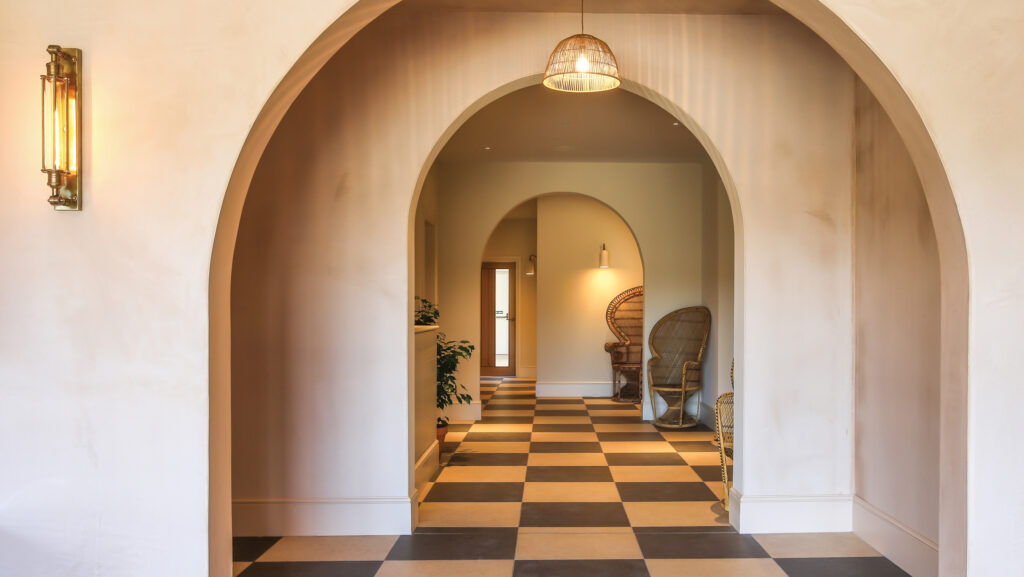
© Robyn Liebenberg
However, things have settled down now, he says.
There were many elements of which to be aware and to become aware, including the details and demands of building and fire regulations, ventilation, accessibility and furniture flammability ratings.
Would they change anything if they were starting again?
“I think we would question certain things a lot more and perhaps go more with our gut feeling,” says Jo.
“We consulted on some things that we didn’t really need to consult on.”
Also, the business world has changed since the original idea was conceived, with Covid, the election and the Budget, so it’s important to be adaptable.
Building, energy and other costs have risen, along with employer’s national insurance and the minimum wage.
Additional offerings
The club caters for a wide range of functions including private lunches, presentations, company away-days, workshops, photoshoots, receptions, talks, food events, brand launches, press days and networking events.
Many of these have been important in getting the word out about the club.
There is also a popular members’ book club and quizzes.
A monthly newsletter for members keeps them informed about what is happening on farm as the view from the club changes through the seasons.
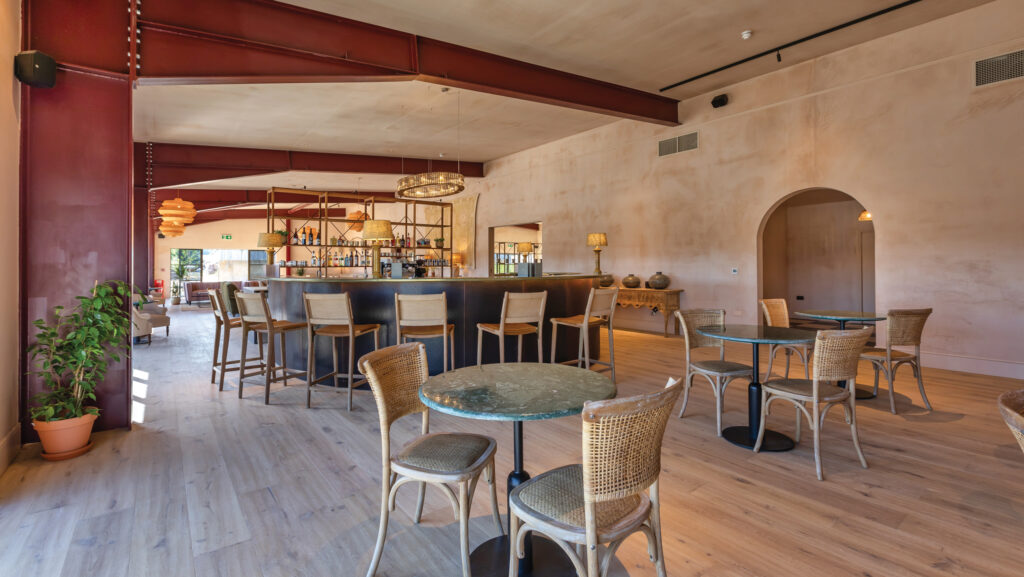
© Robyn Liebenberg
Marketing
Social media has been important for marketing the business, along with local publications, newsletters and the many events, such as workshops, social gatherings and courses.
Collaboration with other businesses is also key in giving the club a wider reach, so that suppliers and advisers to the business put the word out, just as the club recommends their services and products it uses.
“Anything we can do together like this doubles your marketing,” says Jo.
Barnsgrove has also been building relations with local charities, which extends its reach.
